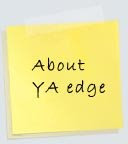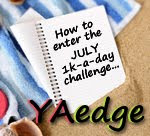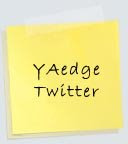We all know the difference between fiction and non-fiction. It's something we learned in elementary school. Fiction is a story from someone's imagination, not real. Non-fiction is the other beast and can be in different forms. Textbooks, memoirs, biographies, or just a story told that really happened. That's what they are in their simplest form, but what about the in between books that are both?
A lot of us remember the controversy of James Frey's A Million Little Pieces I'm sure. If not, here's a quick back story. Oprah picked the book as one of her book club selections. Mr Frey came on her show, as all the author's do who are lucky enough to be selected. He talked about his heroing experience through battling a drug addiction. Some of his stories were outrageous, but believed. Then it started to come out that the stories were partially true, but how much? James Frey was blamed for lying, the publisher was blamed for selling the book as non-fiction and even Oprah was slammed by the media. People had felt like they were misled. They were, to a certain extent.
It leads me to wonder, do people read a book, whether it is truth or fiction, for entertainment value, or something more? I was never a huge fan of non-fiction until recently. I'm in the middle of reading Columbine by Dave Cullen. It's a facinating breakdown of what happened before, during and after the terrible tragedy that took place at Columbine high school. The author dedicated his life since the shooting to this book and it shows. I know everything that I'm reading is real, it happened, or I'm told that the events took place as they are written so I have to believe it, right? I want my non-fiction as entertaining as any fiction book I could read. If I wanted a book to read like a textbook, I'd go back to school.
Then there is the in between books. I think most authors use their own stories in their books. It's only human nature. You are who you are due to your life experiences, right? So where do those books lie? Ellen Hopkins' Crank is based on experiences she lived through with her daughter, but it is fiction, because the story isn't exactly how it happened. She uses her life experiences in her books, but it's still fiction.
I'm currently working on a story along the same lines. I lived it, yet I'm changing the story because honestly, it makes for a better story when I bend it. I won't be pitching it as a biography, memoir or non-fiction, but there will be truth to it. I don't care if readers know that I lived some of it, all I care about is if it is a good story.
What are you thoughts on non-fiction and books that use a large portion of truth to tell a good (fictional) story?
Questions for Aprilynne Pike!
16 years ago









